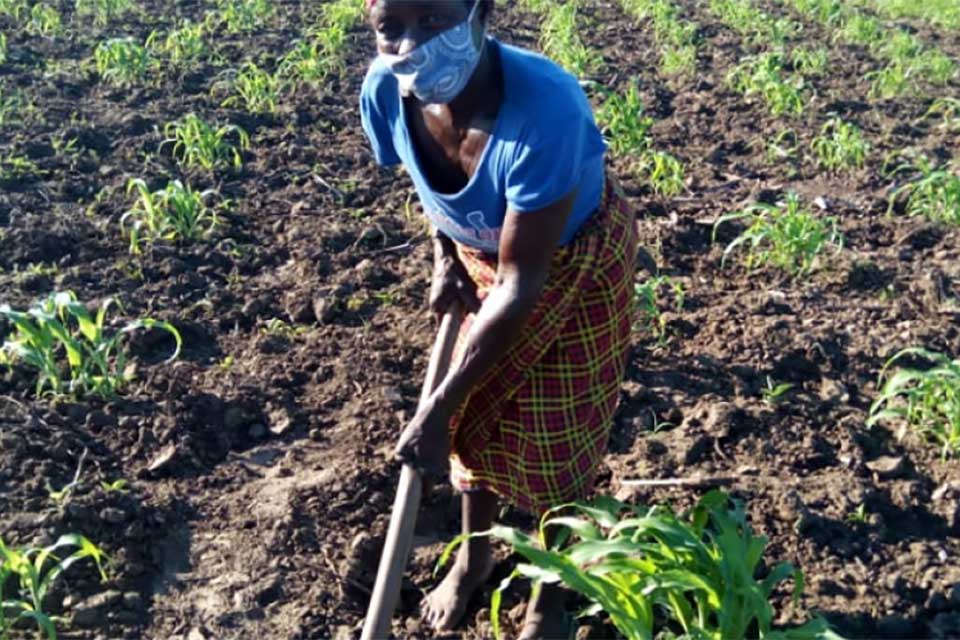In Mozambique, poverty and inequality are still a problem among women. In the education sector, the high level of illiteracy among women and girls, especially among women in rural areas, also limits their access to income and well-being. In the employment sector, women are mostly found in the informal sector and in the agricultural sector as unskilled laborers and especially in subsistence crops.

It is with these factors in mind that ADPP has been implementing projects which are primarily aimed at empowering women and girls, thereby contributing to reversing the cycle of poverty which afflicts most women in Mozambique.
Many women beneficiaries of ADPP’s projects have contributed to the livelihood of their families by providing food and education for their children.
At the age of 70, Rita Mavuque is an example of overcoming. During the passage of Cyclone Idai she lost everything she had conquered throughout her life. However, thanks to her hard work in her farm, she has recovered almost everything she lost in the past.
“Part of the production is for family consumption and the other part is for sale in the local market. With the amount I earn I was able to rehabilitate my house that was partially destroyed and buy school supplies for my children.” – she tells.
Celestina Saíde is also one of the women who is in the front line in the fight against poverty. She is part of an association called “Associação Combate Fome Zero”. Besides working in the fields, Celestina dedicates herself to sewing and is part of a savings group, together with other women from her locality. Through her activities she is able to support her children and grandchildren.
Through ADPP’s programs and projects, the women are also involved in initiatives to combat diseases such as tuberculosis and HIV-AIDS. ADPP has a wide network of activists working in rural communities.
Celeste Banze, Herminia Silvestre are activists in the Active Search and Investigation of Contacts Project, which aims to improve TB case detection, investigation of household contacts, follow-up of sputum negative cases and recovery of lost cases.
Celeste believes that her work has a positive impact on the community because it contributes to many people having access to Tuberculosis treatment. In the end satisfaction: “my daily work, my greatest satisfaction is to see a person cured. We have created a friendship relationship with some people with TB and seeing them well is a happiness, a feeling of duty fulfilled,” she explains.
Like Herminia, Celeste is very proud of the work she has developed in the community because, she says, only a healthy community can contribute to the development of the country.
The work of ADPP is fully aligned with the Sustainable Development Goals (SDGs) of the United Nations, regarding the support of girls and women in vulnerable situations and gender-based violence.
It should be noted that in 2020 at ADPP Schools, 2,397 girls transitioned from elementary school to secondary school, an achievement achieved through the women and girl’s empowerment projects being implemented by ADPP and its partners.

